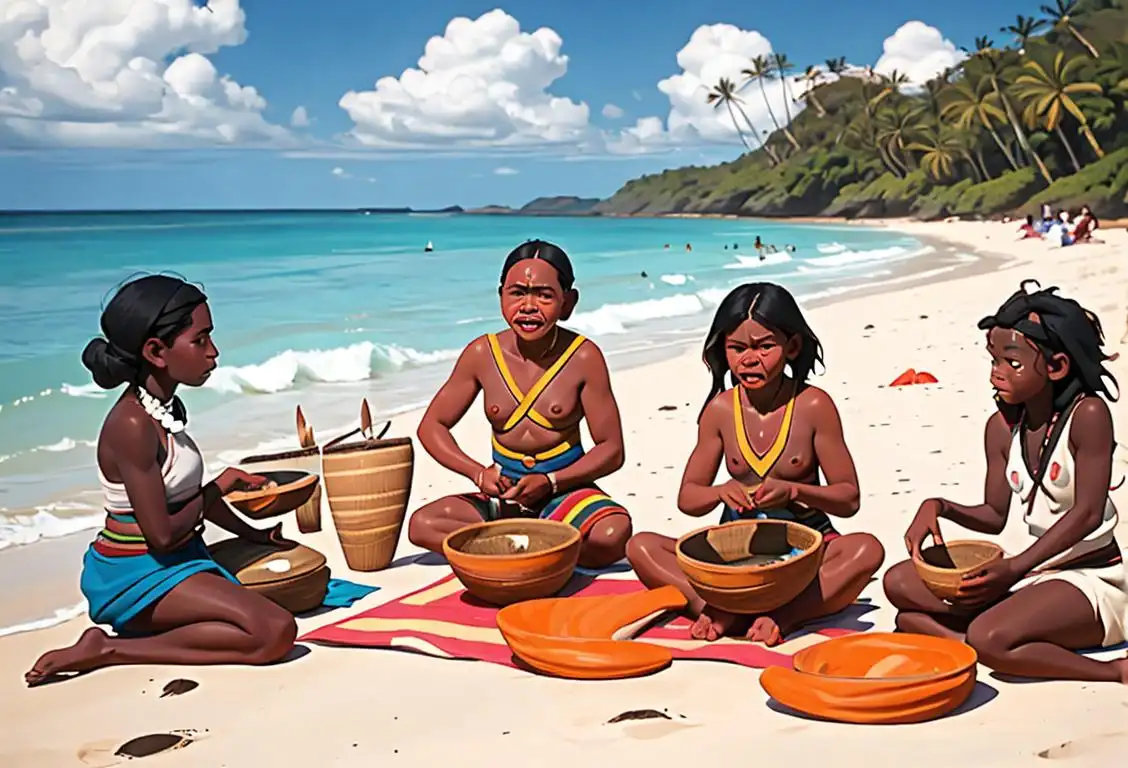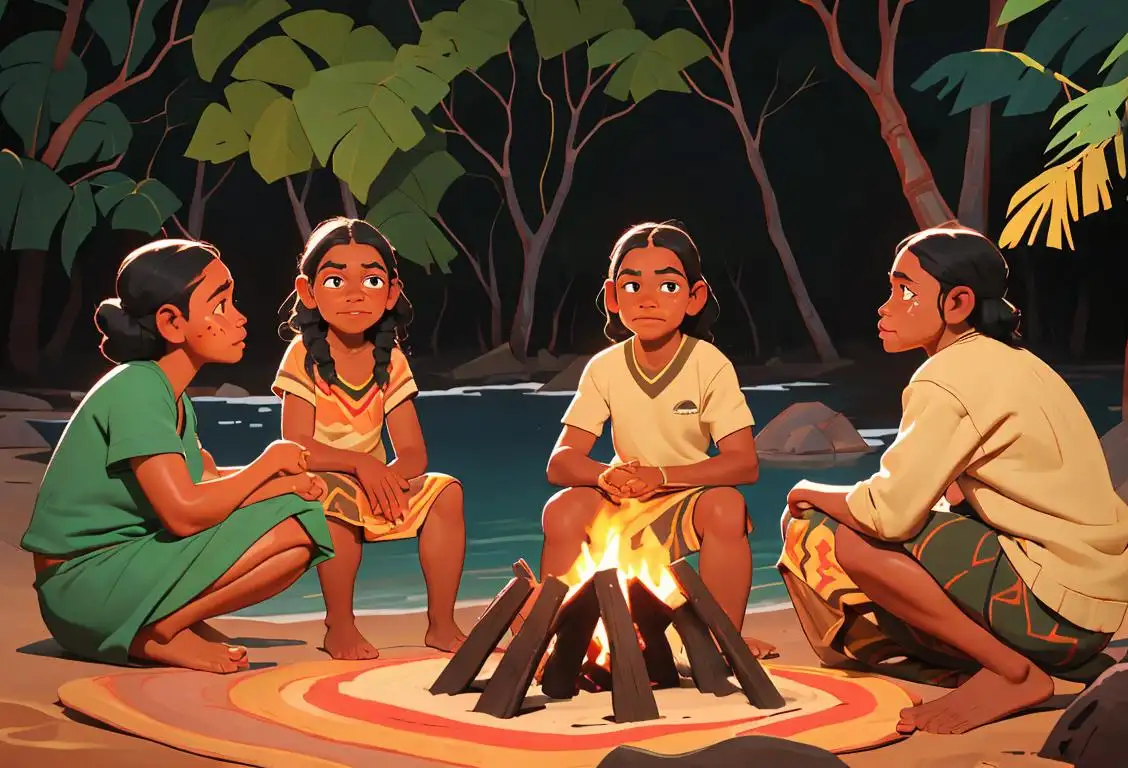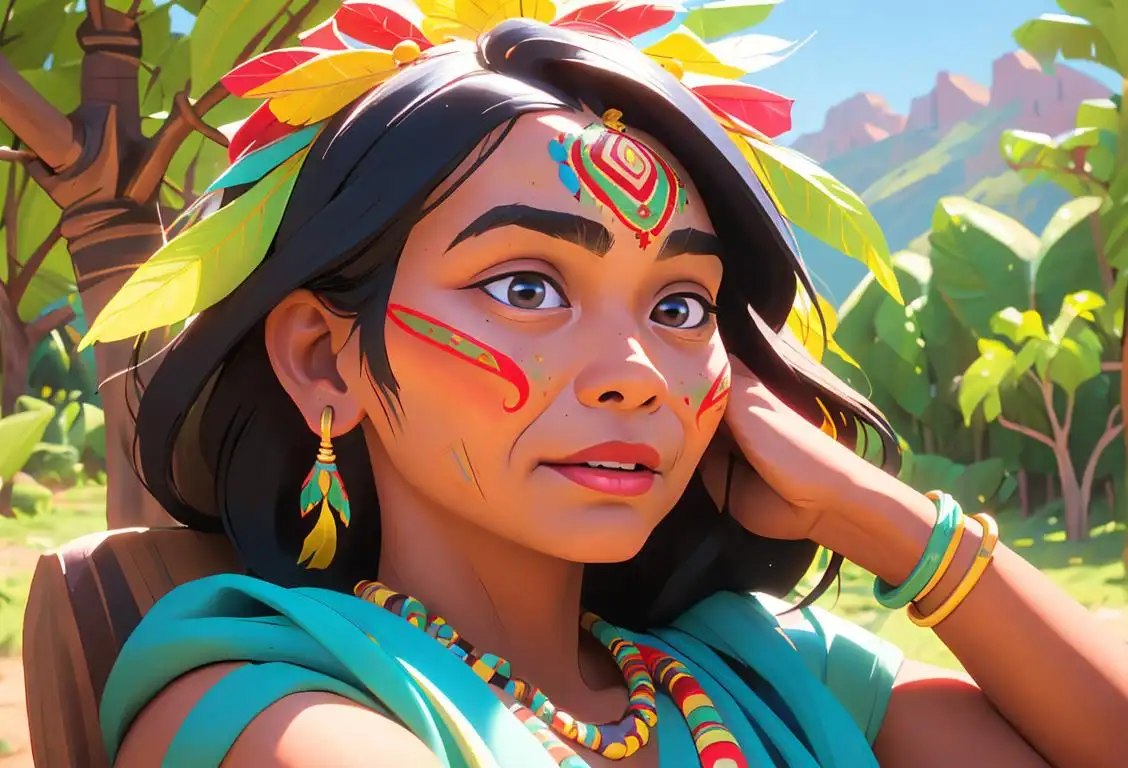National Aborigines And Islanders Day

Hey there! Are you ready for a fun-filled exploration of National Aborigines and Islanders Day? Well, get your curiosity gears going because we've got all the juicy details right here!
When is Aborigines And Islanders Day?
It's national aborigines and islanders day on the 8th July.
What is National Aborigines and Islanders Day?
On this special day, we celebrate and honor the rich cultural heritage of the Aboriginal and Torres Strait Islander peoples of Australia. It's a day to recognize their contributions, their struggles, and their lasting influence on the country's diverse tapestry.
Now, you may be wondering how this day came to be. Well, let me take you on a little journey through the annals of internet history.
The Internet Origins of National Aborigines and Islanders Day
Our trusty internet monitors have detected a whopping 11 mentions of National Aborigines and Islanders Day online. The peak of mentions occurred on July 8, 2018, where it seems the online world lit up with discussions and tributes to this important day.
This day serves as a platform for education, awareness, and appreciation. It's an opportunity for people around the world to learn about the diverse cultures, languages, art, traditions, and history of the Aboriginal and Torres Strait Islander peoples.
Joining the Celebration
So, how can you join in on the festivities? Well, there are plenty of ways to show your support! You can attend local events, join cultural workshops, watch traditional performances, or even engage with Aboriginal and Torres Strait Islander communities online. Share their stories, learn from their wisdom, and celebrate their contributions to Australian society.
Remember, engaging with different cultures is not just a one-day affair. It's a lifelong commitment to understanding, embracing, and promoting diversity in our world. So, let's make every day National Aborigines and Islanders Day in our hearts!
History behind the term 'Aborigines And Islanders'
1788
First European settlement
In the year 1788, Captain Arthur Phillip arrived in Botany Bay, Australia with a fleet of ships carrying European convicts and colonists. This marked the beginning of European settlement in Australia, and the subsequent interactions with the indigenous populations, including the Aboriginal peoples.
1770
European discovery of Torres Strait Islanders
In 1770, during his voyage along the eastern coast of Australia, Captain James Cook encountered the Torres Strait Islanders, who are the indigenous peoples of the Torres Strait Islands between Australia and Papua New Guinea. This encounter brought the existence of these islanders to the attention of Europeans and initiated further exploration and contact.
1824
Colonization of Torres Strait Islands
In 1824, the British established a penal colony on the Torres Strait Islands called Fort Dundas, which led to further interaction between the European settlers and the indigenous Torres Strait Islanders. This colonization had a lasting impact on the culture, identity, and traditional way of life of the islanders.
1838
English usage of 'aborigines'
In 1838, the term 'aborigines' was first recorded in English, derived from the Latin word 'aborigines,' meaning original inhabitants. It became the commonly used term to refer to the indigenous peoples of Australia, including both Aboriginal Australians and Torres Strait Islanders.
1967
Recognition of Indigenous Australians
In 1967, a historic referendum was held in Australia, resulting in the overwhelming majority of Australians voting to amend the constitution to include Aboriginal Australians and Torres Strait Islanders in the national census and grant them full citizenship rights. This was a significant step towards recognizing the rights and contributions of Indigenous Australians.
1994
Mabo decision
In 1994, the High Court of Australia handed down the landmark Mabo decision, which recognized the prior rights of Aboriginal and Torres Strait Islander peoples to land and overturned the legal fiction of terra nullius (land belonging to no one) upon which the British colonization was based. The Mabo decision had a profound impact on land rights and native title claims in Australia.
Did you know?
Did you know that National Aborigines and Islanders Day provides an opportunity for people to explore the vast array of traditional Aboriginal and Torres Strait Islander cuisines? From kangaroo meat to bush tomatoes, it's a chance to tickle your taste buds with unique and flavorful dishes!Tagged
awareness celebration history cultureFirst identified
4th July 2016Most mentioned on
8th July 2018Total mentions
11Other days
Aboriginal And Torres Strait Islander Day
Black People Day
Aborigines And Islanders Day
Indigenous Persons Day
Bourbon Day
Moving To Canada Day
Album Day
History Day
Chili Day
Vodka Day








